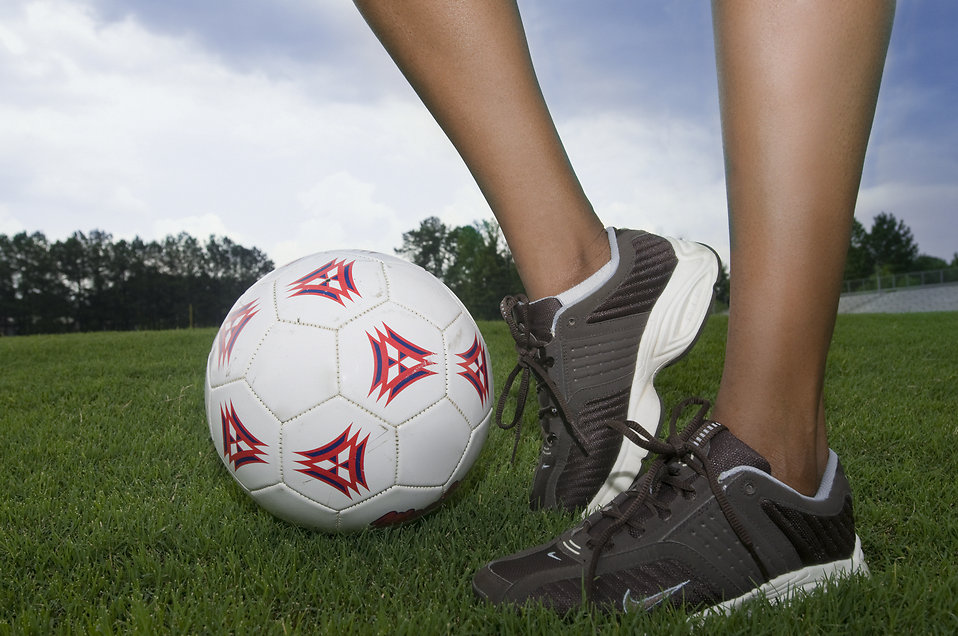by SARAH OLLE| @sarahjolle
Women’s soccer star Beattie Goad says she’s sick of seeing parochial sports coverage, where women are just an afterthought. She says it only reinforces gender stereotypes and discourages young girls from realising their dreams of becoming professional athletes.
Goad’s insight into gender inequality in sport is as flawless as it is intoxicating. It’s pretty impressive for someone who’s only 17, but Goad’s age has belied her achievements for some time.
In 2014, Goad made history as the youngest Victorian to ever play in a national league grand final when she represented Melbourne Victory. She was only 16 years and 267 days old.
As the future of the Matildas, Goad firmly believes when it comes to gender and soccer – there is no equal playing field. She says it’s an issue that extends far beyond sport.
“If you watch the sport on the news, it’s mostly men, so from a young age you get this perception that women aren’t necessarily (sports stars),” she says.
Goad wants to change this perception, but it’s no easy task. The very language used to describe athletes is hyper-masculine, which is immediately at odds with women, constructions of femininity and social mores.
This is problematic for female sports stars because the need to be defined as “feminine” is paramount to securing sponsorships and endorsements.
Female athletes who are graceful, humble, and above all, attractive, meet society’s parochial and extremely high standards. It’s easier to market the girl next door than the aggressor, and it’s even easier to market a sex symbol.
This probably explains why tennis player Anna Kournikova received the biggest endorsement from Nike of any female athlete in the world during the 1990s, despite having never won a singles title.
Goad’s teammate Madeline Stockdale was recently selected to train in the Young Matildas squad, made up of girls who are under 19 and many still in school. She’s also disheartened by the way sponsorships are predicated on marketability.
“It does upset me,” she says. “To be recognised purely on your looks instead of your skill doesn’t really make sense.”
The Matildas earn $500 for every standard international game, while their male counterparts, The Socceroos, pocket $6,500. This huge pay disparity means endorsements are critical for the Matildas.
At this year’s world cup, the Matildas achieved something the Socceroos have never done: a knock-out round match against Brazil. Yet they received only a fifteenth of what the Socceroos would have if they’d achieved the same success.
Stockdale says the reason for such enormous pay disparity boils down to sponsorship.
“It’s based on the fact that males are watched more.”
It’s a chicken and egg scenario. Sponsors won’t pump money into the women’s game, as the return is far greater in men’s soccer because of bigger audiences.
Yet without sponsorship, the pool of funds in women’s soccer is too small to extend broadcasting right and increase viewership.
Both Goad and Stockdale, however, remain optimistic about the women’s game and their place as up-and-coming Matildas players.
Stockdale says the American winners of this year’s FIFA World Cup have captured the imagination of the American people. Their success has been mirrored in popular support and recognition, which is encouraging.
“There were so many TV shows that had them on and they were saying to the country get around them, they’re playing in the World Cup, we need to support them,” Stockdale says.
In the aftermath of the US team’s success, pop superstar Taylor Swift invited the squad on stage to the applause of thousands. America had embraced girl power. But the story hasn’t been the same for the Matildas.
“The problem is we saw so much coverage of the Matildas during the World Cup, but now it’s gone,” says Goad.
Dr Tom Heenan is a sport studies expert from Monash University. He says despite the Matildas World Cup campaign success, we’re kidding ourselves if we think success alone will change things.
“They are still second class citizens,” he says. “And they will remain so until sponsors, the media and the sporting public begin to take them seriously.”
Both Goad and Stockdale are determined to play professional soccer, despite knowing the battle is an uphill one.
It’s still not normal for a 17 year-old girl to say she wants to be a professional soccer player when she grows up. So, whenever Goad or Stockdale give that response to a teacher, a friend’s parent or a nosy acquaintance, they are usually met with derision.
Goad says their steely determination is a manifestation of their mental fortitude, which they’ve developed from those kinds of awkward and sometimes belittling conversations.
“Female athletes are strong, and not just strong in a physical sense,” Goad says. “Male athletes are supported a lot [more] with sponsorships and coaching.”
“I’ve had coaches say I’m too skinny and I’m going to be pushed off the ball, but that only motivates me more.”
It’s pretty impressive for someone who’s only 17. But that’s the path young female athletes must navigate to get to the top, proving people wrong one detractor at a time. As for Goad, she says her latest source of inspiration came from an unsuspecting fan.
“A little girl said I inspired her the other day, and I was speechless because I didn’t think that what I do has [that kind of] effect…it makes you want to continue what you’re doing.”
Image: Creative Commons


